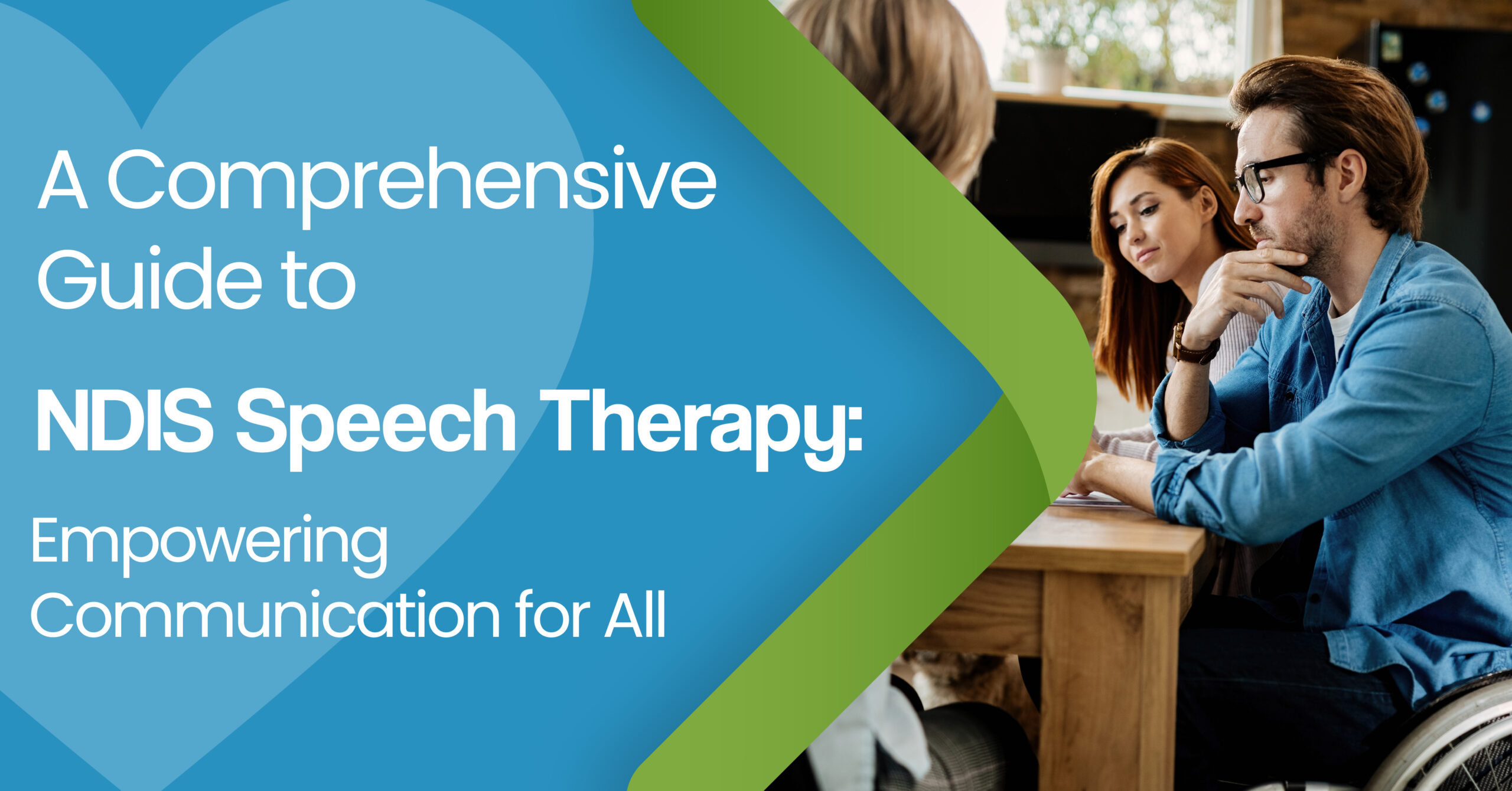Effective communication is a cornerstone of daily life, enabling individuals to express their needs, build relationships, and participate fully in their communities. For people with disabilities, communication can be a significant challenge. NDIS Speech Therapy offers a lifeline, providing specialized support to enhance communication skills and overall well-being. In this comprehensive guide, we’ll explore the role of NDIS Speech Therapy, its benefits, and how to access these vital services.
Understanding NDIS Speech Therapy
What is NDIS Speech Therapy?
NDIS Speech Therapy is a service funded by the National Disability Insurance Scheme (NDIS) in Australia. It aims to support individuals with communication and swallowing difficulties. Speech therapists, also known as speech pathologists, work with people of all ages who have various disabilities, helping them improve their communication abilities and quality of life.
Why is NDIS Speech Therapy Important?
Communication is essential for independence, social interaction, and emotional well-being. For individuals with disabilities, speech therapy can address a range of challenges, including:
- Speech and language delays
- Difficulty with articulation
- Voice disorders
- Swallowing issues (dysphagia)
- Social communication disorders
By addressing these issues, NDIS Speech Therapy empowers individuals to express themselves more effectively, participate in social activities, and improve their overall quality of life.
Benefits of NDIS Speech Therapy
Enhanced Communication Skills
One of the primary benefits of NDIS Speech Therapy is the enhancement of communication skills. This includes improving both verbal and non-verbal communication, which is crucial for expressing needs, emotions, and ideas.
Improved Social Interaction
Better communication skills lead to improved social interactions. Individuals can engage more effectively with family, friends, and the wider community, reducing feelings of isolation and improving mental health.
Increased Independence
Effective communication fosters greater independence. Individuals can advocate for themselves, make informed choices, and manage their daily activities more efficiently.
Support for Swallowing Disorders
Swallowing disorders can significantly impact health and quality of life. NDIS Speech Therapy provides strategies and interventions to manage dysphagia, ensuring safer eating and drinking.
Tailored Therapy Plans
Each individual’s needs are unique. NDIS Speech Therapy offers personalized therapy plans tailored to the specific requirements and goals of the participant, ensuring the best possible outcomes.
Accessing NDIS Speech Therapy
Eligibility for NDIS Speech Therapy
To access NDIS Speech Therapy, individuals must first be eligible for NDIS funding. Eligibility criteria include having a permanent and significant disability that affects the ability to participate in daily activities.
Creating an NDIS Plan
Once deemed eligible, individuals work with an NDIS planner to create a personalized plan. This plan outlines the supports and services required, including speech therapy.
Finding a Speech Therapist
Participants can choose from a range of registered NDIS service providers. It’s important to select a speech therapist with experience in addressing the specific needs of the individual. Resources such as Aus Disability offer valuable information and assistance in finding the right therapist.
Implementing the Therapy Plan
After selecting a speech therapist, the next step is to implement the therapy plan. Regular sessions, progress monitoring, and adjustments to the plan ensure continuous improvement and goal attainment.
The Role of Support Networks
Disability Support Workers
Disability support workers play a crucial role in the success of speech therapy. They assist with implementing therapy strategies in daily routines, providing consistent support and encouragement. Learn more about the role of disability support workers here.
Family and Caregivers
Family members and caregivers are integral to the speech therapy process. Their involvement and support can significantly enhance the effectiveness of therapy by providing a supportive and encouraging environment.
Disability Care Services
Comprehensive disability care services, such as those offered by Focused Primary Care, provide additional support, ensuring that all aspects of the individual’s needs are met.
Home Disability Support Services
Bringing Therapy Home
For many individuals, receiving therapy at home can be more comfortable and convenient. Home disability support services offer the flexibility to integrate therapy into the individual’s natural environment. Explore home disability support options here.
Creating a Supportive Environment
A supportive home environment is crucial for the success of speech therapy. Family members can assist in creating an environment conducive to learning and practicing communication skills.
Conclusion
NDIS Speech Therapy is a vital service that empowers individuals with communication challenges to lead more fulfilling lives. By enhancing communication skills, improving social interactions, and fostering independence, speech therapy provides invaluable support.
Accessing these services through Focus Primary ensures that individuals receive personalized, high-quality care tailored to their unique needs. Whether through the assistance of disability support workers, family members, or home disability support services, a collaborative approach ensures the best outcomes for those in need.
FAQs
1. What is the National Disability Insurance Scheme (NDIS)?
The NDIS is an Australian government initiative that provides funding and support for individuals with permanent and significant disabilities, helping them achieve their goals and improve their quality of life.
2. How do I know if I am eligible for NDIS Speech Therapy?
Eligibility for NDIS Speech Therapy depends on having a permanent and significant disability that affects your ability to communicate or swallow. An NDIS planner can help determine your eligibility.
3. How often are speech therapy sessions conducted?
The frequency of speech therapy sessions varies based on individual needs and goals. A speech therapist will develop a personalized plan that outlines the recommended frequency of sessions.
4. Can speech therapy be conducted at home?
Yes, many NDIS speech therapists offer home-based therapy services, providing flexibility and convenience for individuals who prefer to receive therapy in their natural environment.
5. How can I find a qualified NDIS speech therapist?
You can find qualified NDIS speech therapists through registered service providers. Resources such as Aus Disability can assist in finding the right therapist for your needs.

